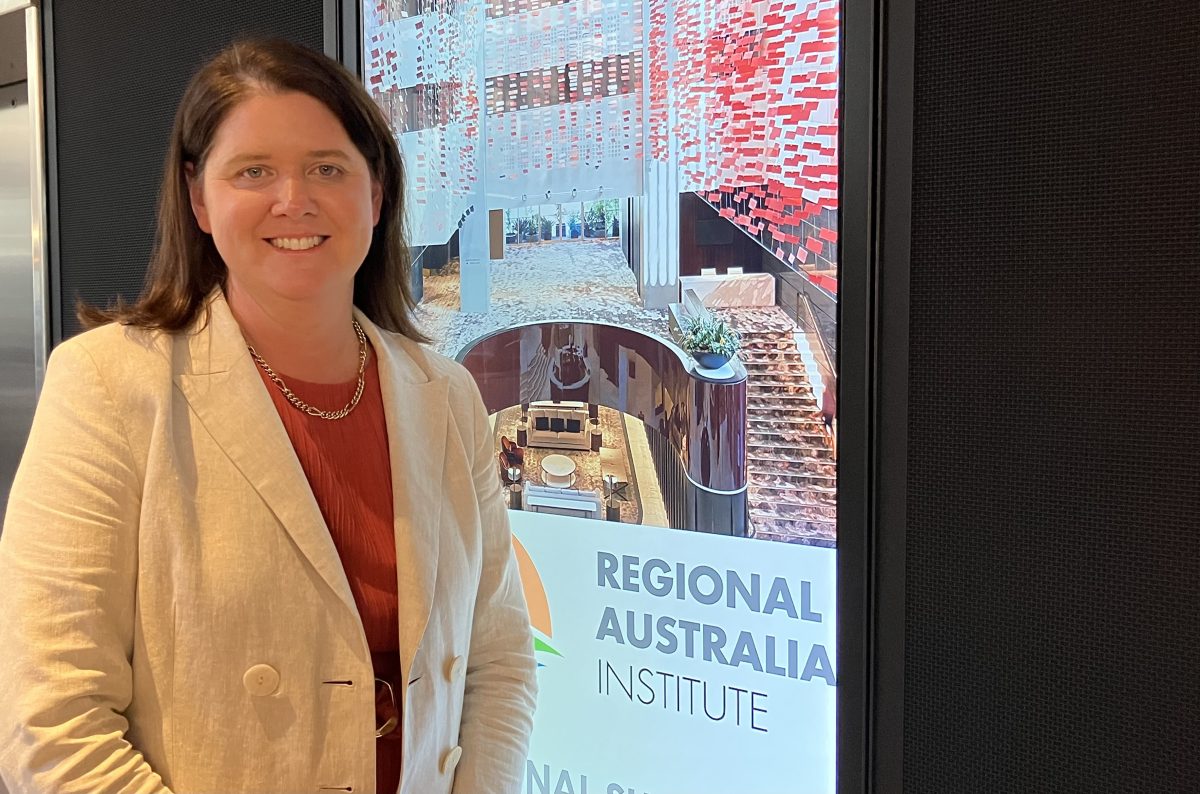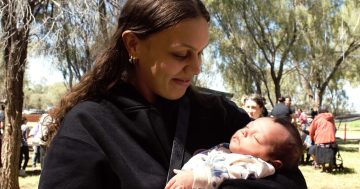
Regional Australia Institute CEO Liz Ritchie at the Regions Rising Summit in Canberra. Photo: Region.
Regional Australia has a message for Canberra and it’s all about housing and workers – or more to the point, a lack of both.
The Regions Rising Summit 2023 opened at the Realm Hotel in Canberra on Wednesday noting housing and a worker shortage as two areas hampering advancement.
The Regional Australia Institute is using its two-day conference to deliver a progress report one year on from the launch of its Regionalisation Ambition 2032 plan, which shows while progress is being made towards some targets, two areas are seriously lagging.
Despite a population surge to regional Australia continuing over the past 12 months, building approvals have declined and finding staff to fill critical roles has become tougher.
About 9.6 million people now call the regions home.
The institute’s chief executive officer Liz Ritchie described the housing and workforce targets as the Achilles’ heel of regional Australia.
She said the progress report offered policy and decision-makers an opportunity to track the progress of regional Australia through a collective lens, on the issues most critical to productivity, growth and sustainability.
“It provides the evidence of what regional employers across the country have been telling us – that it’s getting harder and harder to fill roles,” Ms Ritchie said.
“Also, having the right homes to accommodate new staff is a critical factor and that is why we must look at these issues in unison.”
Addressing the summit, Ms Ritchie called for a bipartisan ‘systems thinking’ approach that viewed ‘problems’ as part of a wider, dynamic system.
It was the process of understanding how things influence one another as part of a whole, she said.
“The challenges we seek to solve in this Ambition have clearly been held in the domain of the big, wicked problem basket because they defy a simple explanation,” Ms Ritchie said.
“So, does this mean that we should accept the status quo? Does this mean we bury our heads and hope, one day someone else will solve this? No, and no.
“It means ladies and gentlemen, it’s our time, and it’s our opportunity to solve it together…”
She said we were witnessing a major societal transition.
“I cannot stress enough that our citizens believe in a better future for themselves and their families.
“And more, and more they believe that the future is in regions, 3.5 million [more] to be precise.
“This means that we are at tipping point to get this once in a generation transformation right, but we must think big, we must think long term, we must shift our gaze from the bright lights of capitals to a nation that is more diverse and dispersed…
“We can be a nation that has a more balanced existence with a higher level of wellbeing, better outcomes in education and skills that can make us more competitive.
“We’ve got a huge opportunity for improved and expanded productivity, and ultimately a more equitable future. We can do this but only if we do it together if we understand the power of our collective action and the product of our interactions.”
In July, more than 90,200 roles were advertised in regional Australia, 2.7 per cent higher than a year ago.
Annual growth in regional Australia stands in stark contrast to metropolitan Australia, where job advertisements declined by 10 per cent.
The RAI’s Ambition strategy document set a target to reduce recruitment difficulty in regions to below 40 per cent, but today’s figure stands at 69 per cent, up from 64 per cent a year ago.
“There are three ways to fill these roles: to see more people moving out of our capitals, educating talent from within and an uptick in international migration to the regions – all targets within the Ambition,” Ms Ritchie said.
While the regional rental vacancy rate has increased from 1 per cent to 1.5 per cent – and is higher than capital cities (1.1 per cent), monthly building approvals in the regions have declined.
“Over the last year, a strong coalition of supporters has been established to drive the Ambition and it’s vital that momentum continues, including across government, industry, community, and the not-for-profit sector.
“Regional Australia is a sleeping giant, with the desire to perform. But we need to use the results of this first year progress report to ensure we can unleash its potential.”





















